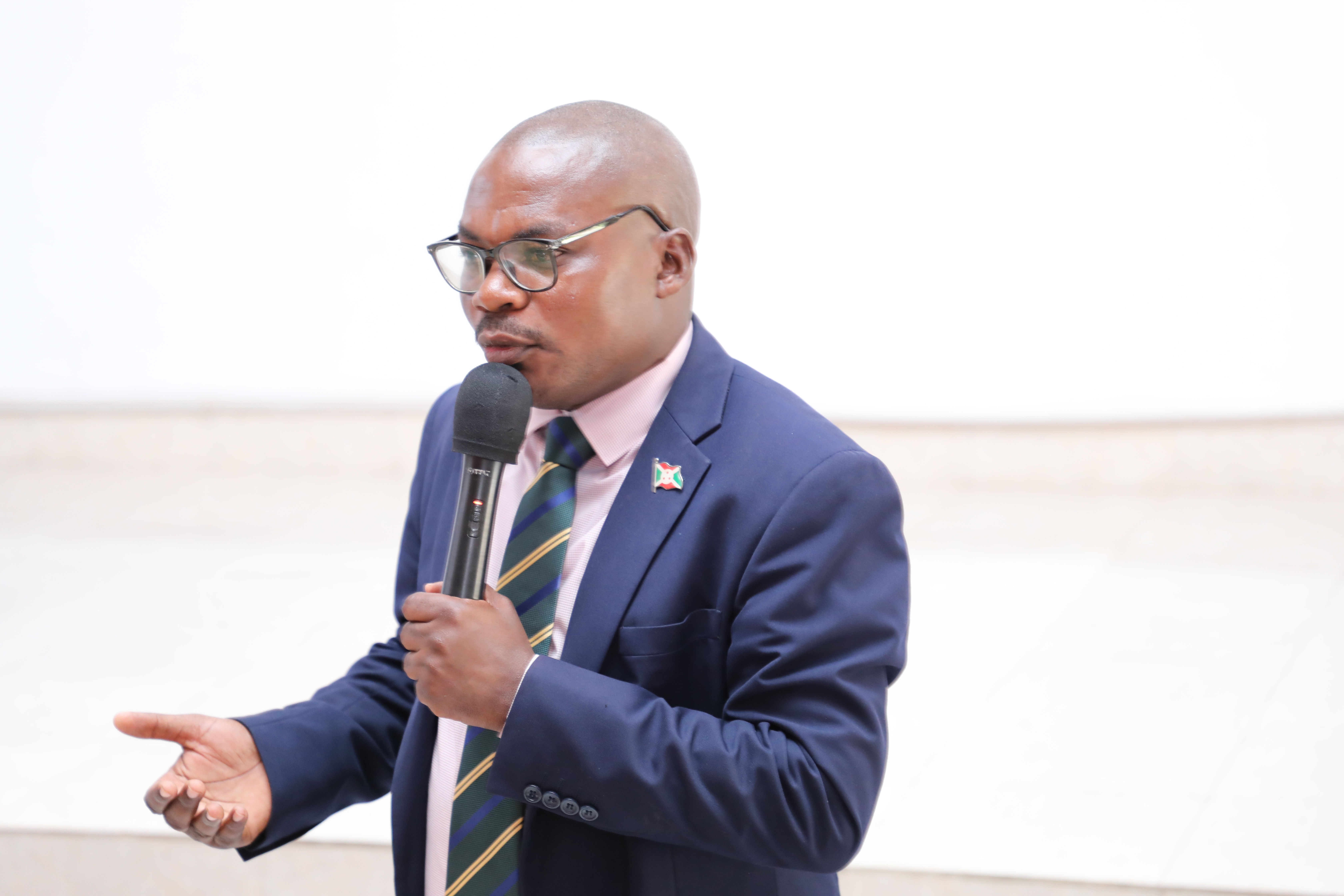 Docteur.Dionise ARAKAZA
Docteur.Dionise ARAKAZA
Nom et prénom :Dionise ARAKAZA
Faculté/Institut : Faculté des Sciences Politiques et Jurdiques(FSPJ)
Centre de recherche : CREDSR
- The European Union’s (EU) foreign aid has been significant to the African Union (AU) in undertaking its missions, especially
regarding long-term growth, economic unity, and security and peace. Therefore, this article looks into the main ways that the EU
helps the AU, rates how well they work, and rates how help from outside the AU adds to the work of member states. The study
further shows the good and bad aspects of the partnership, using graphs to help people understand. The European Union has also
been an essential growing partner for the African Union for a long time. Furthermore, by providing policy, technical, and
financial help, the EU has helped Africa stay safe and grow. It also explores the EU’s involvement in African affairs, intending to
maintain peace and strengthen the economy of the AU member states. Also, there is still a lot of disagreement about how
long-term foreign aid might affect Africa’s ability to support itself. The EU, on the other hand, has done a lot to help Africa grow.
Thus, this analysis is crucial to determining whether EU’s help will work long-term and fit Africa’s long-term goals by drawing
which policies should be changed to make things work better and last longer and how much EU aid helps the AU meet its goals.
publier le 2025-09-22 22:15:11
- The United Nations (UN) is the leading inter-governmental organization that still holds great power over issues of global
governance, diplomacy, and international cooperation. The UN was created in 1945 and its main goal is to maintain international
peace and security, and promote human rights and Socio-economic development. Thereupon, through the decades, the UN has
addressed challenges and has adapted to the emergence of new threats to international peace and security, such as climate change,
terrorism, pandemics, and all phenomena related to sustainable development. Nevertheless, despite its advantages in delivering
diplomacy and humanitarian aid, the UN has been constantly criticized for inefficiency, bureaucracy, and disproportionate power
to global leadership in keeping with the Security Council permanent members interests. UN is in need of restructuring to
straighten its goals with its activities since the world of 1945 was very different from the world in the 21st century. Many of the
structures and processes of the UN reflect a bygone era change that have happened in the last 65 years. Nicola-Ann Hardwick
explains that reform of the United Nations is a much-debated subject constantly on the UN agenda as a necessary waiting in order
to strengthen the UN’s effectiveness as a multilateral organization, bring more transparency to the institution and enhance its
credibility. He also mentions that the main focus is on the reform of the Security Council (SC), as this is the most powerful UN
institution with the most potential for bringing change. The present study aims to provide a critical performance-based
assessment of the UN’s organizational structure, governance processes, and efficiency in managing global crises. Furthermore,
the UN’s benefits and drawbacks, its structural reform needs for boosting governance efficiency and relevance to world
challenges in the 21st century, will be evaluated. With reference to recent literature and empirical materials, this article provides
a comprehensive review of the UN’s important role in contemporary international relations, assessing its impact on member
states and identifying potential measures for continued success and effectiveness.
publier le 2025-09-22 22:30:04
- The conflict between the Democratic Republic of Congo and the March 23 Movement (M23) is arguably one of the oldest insecurity threats in the Great Lakes region. Built on the previous unrest and ethnic confrontation, M23 emerged in 2012 as a rebel group from the former Congolese rebels dissatisfied with the government's inaction in implementing previous agreements. While several efforts have been made to end the war, it has continued to be encouraged by outside players for control over the mineral wealth endowment of the DRC. The war has led to massive dislocation, massive loss of property wealth, and a pressing humanitarian crisis, and any elements of these that are built have been reversed by continuous violence. The value of this study can be highlighted in an attempt to explain why this war has not ended despite several efforts by diplomats. In the case of the Confederacy, the major foreign allies and their function to maintain the war were the following. The paper also assesses the lack of intervention by the mediator organizations of the regional organization, African Union, and United Nations. The report also calculates the social and financial loss and damages that have resulted from war and conflicts, including refugee crises and loss of properties and resources. It finally offered suggestions for long-term peace with enhanced policing measures, smart sanctions, an interdependent economy, and a good governance program. The best remedy to these problems lies in determining lasting peace and stability and preventing future aggression.
publier le 2025-09-22 22:59:26
 Docteur.Dionise ARAKAZA
Docteur.Dionise ARAKAZA

